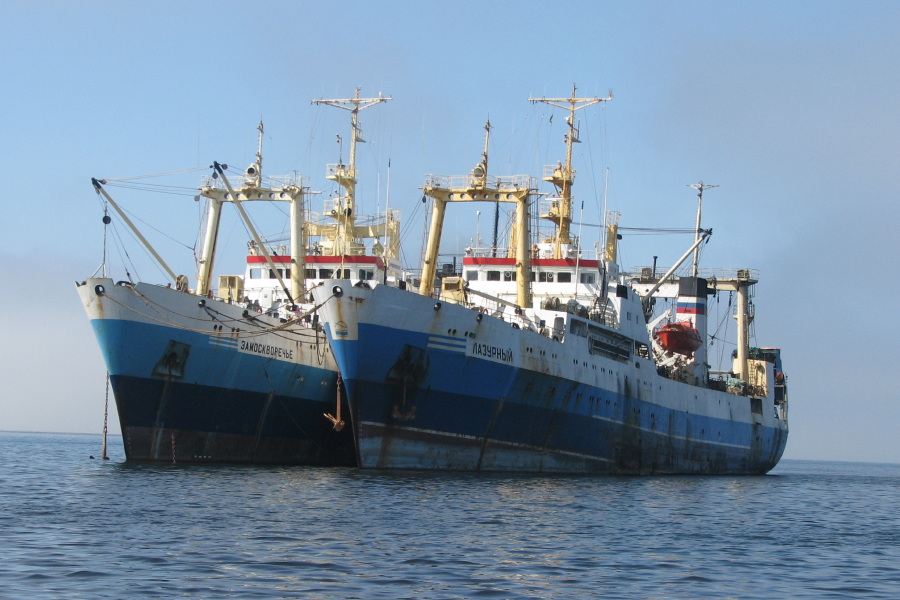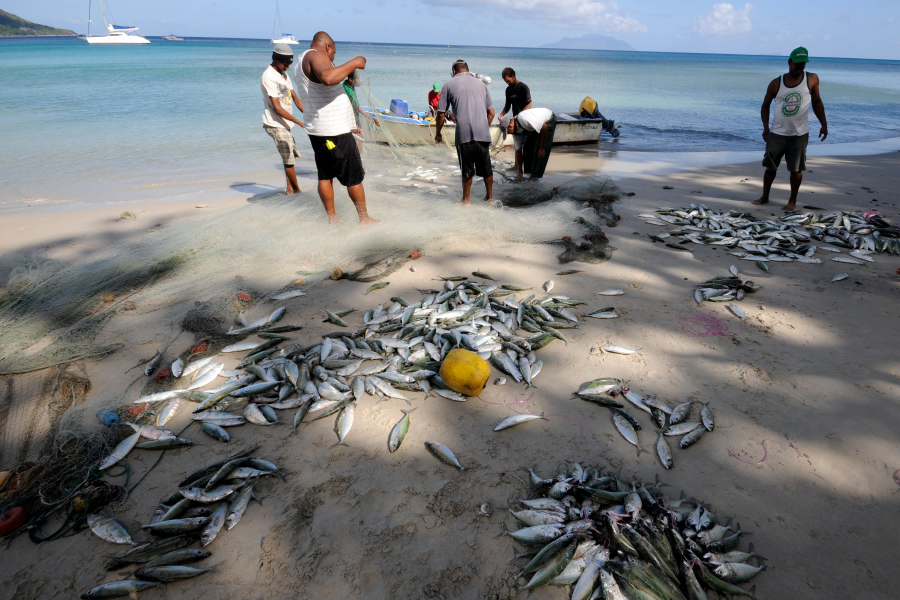IUU fishing and fisheries crime in the SADC region
Illegal, unreported and unregulated (IUU) fishing relates to fishing that is in contravention of national or international fisheries laws. It is found in all fisheries, no matter the type or size, and concerns all aspects and stages of the capture and use of fish.

The impact
IUU fishing results in unfair competition for fisheries resources with depleted resources available to bona fide fishers, which can lead to the collapse of local fisheries, with small-scale fisheries proving particularly vulnerable.
Products stemming from IUU fishing can find their way to markets outcompeting local food supply.
The three components of IUU have somewhat different causes and may require different solutions, although all require strengthening the fisheries governance system in a way that provides incentives for compliance and improving fisheries monitoring, control and surveillance (MCS).
Ministers of the SADC stressed in the 2008 Statement of Commitment to combat IUU fishing that IUU activities are considered a plague to sustainable management of the region’s fisheries resources, and they pledged to fight it.
IUU fishing is taking place across the SADC region
In coastal fisheries, dynamite fishing, use of nets with small mesh size and fishing in protected habitats are common, resulting in damage to valuable marine habitats and biodiversity, which are essential for coastal protection and nursery grounds for fish stocks and for the well-being of coastal communities.
Offshore fisheries experience violations of fishing zones and underreporting of catches, while document and vessel fraud, modern-day slavery and other illegal business practices and crimes also occur. This results not only in damage to fish stocks, but also contributes to transnational organised crime.
Inland fisheries suffer particularly from the use of unsustainable fishing gear and limited reporting of catches, while informal cross-border trade is used to circumvent customs and tax controls, denying governments revenue.
There are different manifestations of fisheries crime associated with fishing, the fishery value chain or the fishery sector, for example, document fraud, tax evasion or corruption are fisheries crimes that are commonly committed during IUU fishing. While an illegal act can be both a fisheries crime and IUU fishing, they can also be separate but related.

Joining forces to combat IUU fishing
Many coastal nations have large exclusive economic zones (EEZs) and inland countries have complex river and lake systems, but they often have limited resources for monitoring fishing activities within these waters.
In the SADC region, countries have different levels of MCS resources, resulting in a patchwork of human, institutional and physical capacities, which in turn leads to shortcomings in the SADC region’s protection against IUU fishing.
By uniting through the MCSCC, coordinated schemes for inspection of fishing vessels and gears, coordinated border controls to monitor fish trade, shared intelligence and information and the cooperative use of remote and physical inspection tools, robust protection for a region, their resources and their markets are developed.
When resources are pooled, they are strengthened, made more efficient and support wider and more comprehensive detection of illegal operators creating a real barrier and deterrence to IUU fishing.